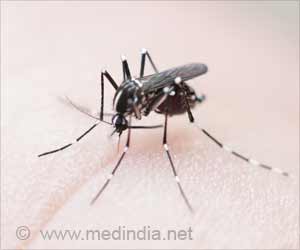They have discovered that mosquitoes, exposed to an insect bacterium called Wolbachia, were unable to acquire the dengue virus from infected humans.

"We did a ’real world’ experiment and allowed mosquitoes infected with Wolbachia and uninfected mosquitoes to feed on the blood of Vietnamese dengue patients," Simmons said. "Our team then measured how efficiently Wolbachia blocked dengue virus infection of the mosquito body and saliva, which in turn stops them spreading the virus between humans."
The research concluded that in areas where the rate of dengue infection was low, exposing mosquitos to Wolbachia could stop all cases of dengue fever. "We found that Wolbachia could eliminate dengue transmission in locations where the intensity of transmission is low or moderate," Simmons said. "In high transmission settings, Wolbachia would also cause a significant reduction in transmission."
Wolbachia has been introduced in the tropical Australian cities of Townsville and Cairns, in the northern state of Queensland, and researchers expect the number of dengue infections in those centres to be drastically lower than in previous years.
Dengue fever, a viral infection found in 110 countries, spreads in tropical climates, causing flu-like symptoms such as headache and joint pain. It is a widespread public health problem in Asia and Latin America, with research suggesting that more than 100 million cases are diagnosed globally every year.
"Our results will enable policy makers in dengue-affected countries to make informed decisions on Wolbachia when allocating scarce resources to dengue control," Simmons said.
Advertisement










